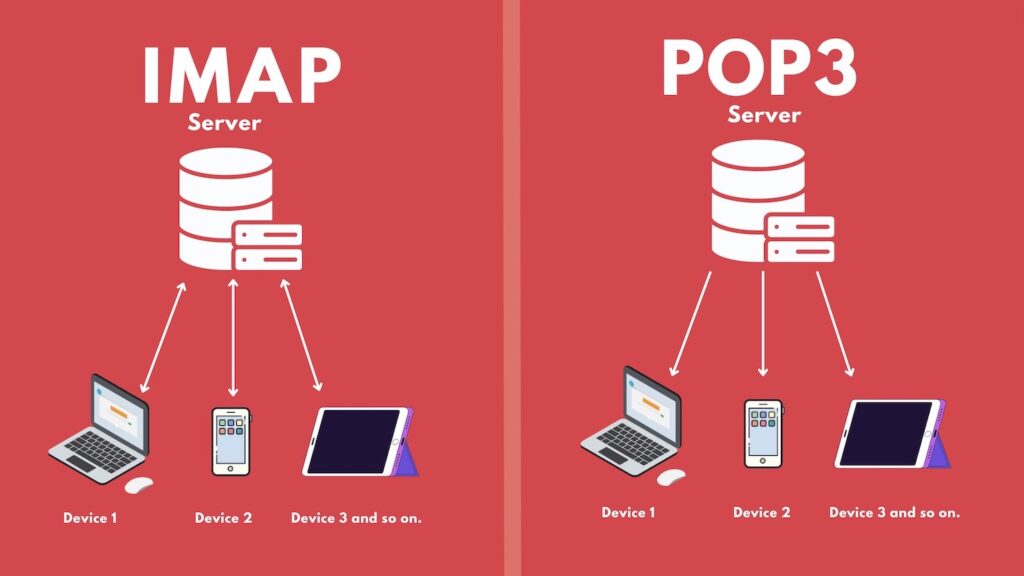Actual Difference: POP vs IMAP
POP or POP3 which stands for Post Office Protocol and IMAP which is Internet Message Access Protocol are two different protocols that determine how your email client (like Microsoft Outlook or Apple Mail) retrieves and displays your emails.
The main difference between the IMAP and POP email protocols is how your emails are downloaded and synchronized amongst your devices.

POP is a simple, straightforward protocol that downloads your emails from the server to your computer or device, and then removes them from the server.
This means, with POP, if you access your emails on multiple devices, only the emails that were downloaded to your first device will be accessible on the others.
IMAP, on the other hand, leaves your emails on the server and synchronizes them across all of your devices.
This means, with IMAP, if you read an email on your phone, it will be marked as read on your computer and vice versa.
Which is Better for You: POP vs IMAP?
In general, IMAP is a more flexible and modern protocol, and is often recommended for most users.
However, POP can still be a good choice for certain situations. It’s important to weigh the pros and cons and decide which one is best for you.
This means, with IMAP, if you read an email on your phone, it will be marked as read on your computer and vice versa.
So, which one is best for you? It really depends on your needs and preferences. Here are some factors to consider:
- If you only access your emails from one device and don’t need to keep a copy of your emails on the server, POP might be the better choice for you.
- If you access your emails from multiple devices and want to keep all of your emails in sync, IMAP is the way to go.
- If you have a limited amount of storage on your device, POP might be a good choice as it doesn’t keep copies of your emails on the server.
- If you want to keep all of your emails on the server for easy access and backup, IMAP is the better option.
IMAP Pros and Cons
IMAP Pros:
- Allows you to access your emails from multiple devices.
- Syncs your emails across all devices.
- Allows you to access your emails directly on the server, without taking up storage space on your device.
IMAP Cons:
- Can be slower than POP3, especially with a large number of emails or a slow internet connection.
POP3 Pros and Cons
POP3 Pros:
- Generally faster than IMAP.
- Only downloads the emails that you need, rather than syncing them across multiple devices.
POP3 Cons:
- Does not allow you to access your emails from multiple devices.
- Emails are only stored on the device that you use to download them, so you will have to manually transfer them between devices if you want to access them from multiple devices.
Final Takeways
In conclusion, POP and IMAP are two different protocols that determine how your email client retrieves and displays your emails.
POP downloads your emails from the server to your device and removes them from the server, while IMAP synchronizes your emails across all of your devices and keeps them on the server.
The best choice for you will depend on your needs and preferences. Consider factors such as device usage and storage limitations when deciding which protocol is right for you.







